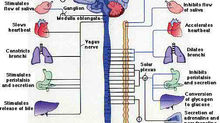Hypnosis Non State Theories
- Tom Lynam - Sheffield City Hypnotherapy
- Feb 5, 2015
- 1 min read
Sheffield Hypnotherapy
The base difference between state and non-state theories is that non-state hypnosis hypotheses assume that client make an active decision to respond to a suggestion , as opposed to the effects simply happening outside the conscoius range of perception.
The socio-cognitive theory operates on the premise of expectancy. The subject has preconceptions of how they are expected to respond to the process of hypnosis and moves to meet those expectations. The thoughts and feelings of the subjects are channeled through the context of the hypnotherapy scenario merging with perceived expectancy to produce therapeutic effect. In an effort to explain the effects that arise from dissociation in state theories, the socio-cognitive theory attributes to normal cognitive processes such as reporting bias and changes in attentional focus, not any special state or phenomenon produced through hypnosis.
Another non-state theory: the response expectancy theory. Here we have the idea that expectancy to some extent governs subjective experience. Evidence trials were run, coming up with what essentially amounts to the placebo effect. Participants given fake cognitive enhancing drugs showed an improvement in functioning, although this is explained by particpants expecting to be more alert and behaving in a manner to meet their own expectancy. Thus cognitive process was improved but not because of the tablets given. In the context of hypnotherapy the theory replaces the benign drugs with the hypnotherapist, the subject projects their expectancy onto the hypnotherapist and moves to meet those expectations. Reposnses are deemed by the subject to be involuntary but in fact, are not.









Comments